
- Want a ticket worth up to $500 for free?
- Submit your answer by April 30th for a chance to win.
Overtourism is something every traveller should be aware of. With more and more people travelling, and with more and more inspiration found on the internet, many places are overrun by tourists and are now left to deal with the bad consequences of overtourism.
10min
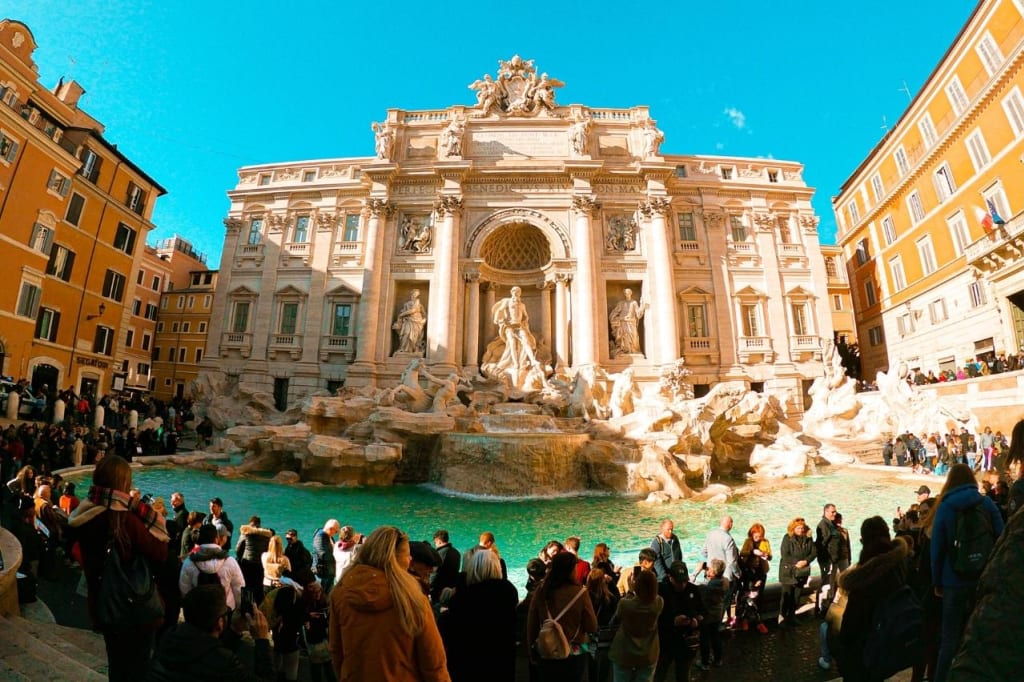
Tourism for the purposes of exploration has been around since the 17th century. Wealthy Europeans started to explore other European nations such as Italy, France, or Spain.
After the socio-economic situation has improved around the end of 18th century, travel became possible for even more people, although it was still only the wealthier people that were travelling for leisure.
Finally, in the 18th century, urbanisation, and development of modes of transport, allowed for even easier movement around and between continents.
At the same time, modernisation made travel more affordable. Whilst some inequalities such as passport inequality is a massive constraint for many nations (in fact, most), in the present 21st century, travel is an option for almost everyone.
Travel is an incredible opportunity to grow and self develop. Volunteering with Worldpackers is an incredible opportunity to share your skills, learn a new language, and engage with the locals on your travels.
Find out more about what is a work exchange and how does it work.
Nowadays, the availability of cheap flights and budget hostels or hotels allow even those on a small budget to explore the world. This is partly responsible for over tourism, or mass tourism.
The world is a massive, beautiful planet full of magical places, cultures, and people. A person can travel for years, and still only scratch a surface. However, there are places that are favoured among holiday makers and are often on the top of ‘travel bucket list’ for many, like these ones:
1. Machu Picchu, Peru
2. Barcelona, Spain
3. Santorini, Greece
4. Bali, Indonesia
6. Cairo, Egypt
7. Venice and Rome, Italy
8. Paris, France
9. Rio de Janeiro, Brazil
10. Yucatán, Mexico
Those are some of the places that everyone, even those that do not really travel, have heard about.
Visits to those places are further encouraged by lists such as ‘7 miracles of the world’ or “UNESCO World Heritage List’. Some places have only become popular with the boom of Instagram and travel influencers.
Geotagging has been responsible for sudden spike in tourism in places such as Santorini or Bali, where many people travel to take the famous shot. Other places have become very popular and started attracting thousands of tourists after big movies have been recorder in particular locations.
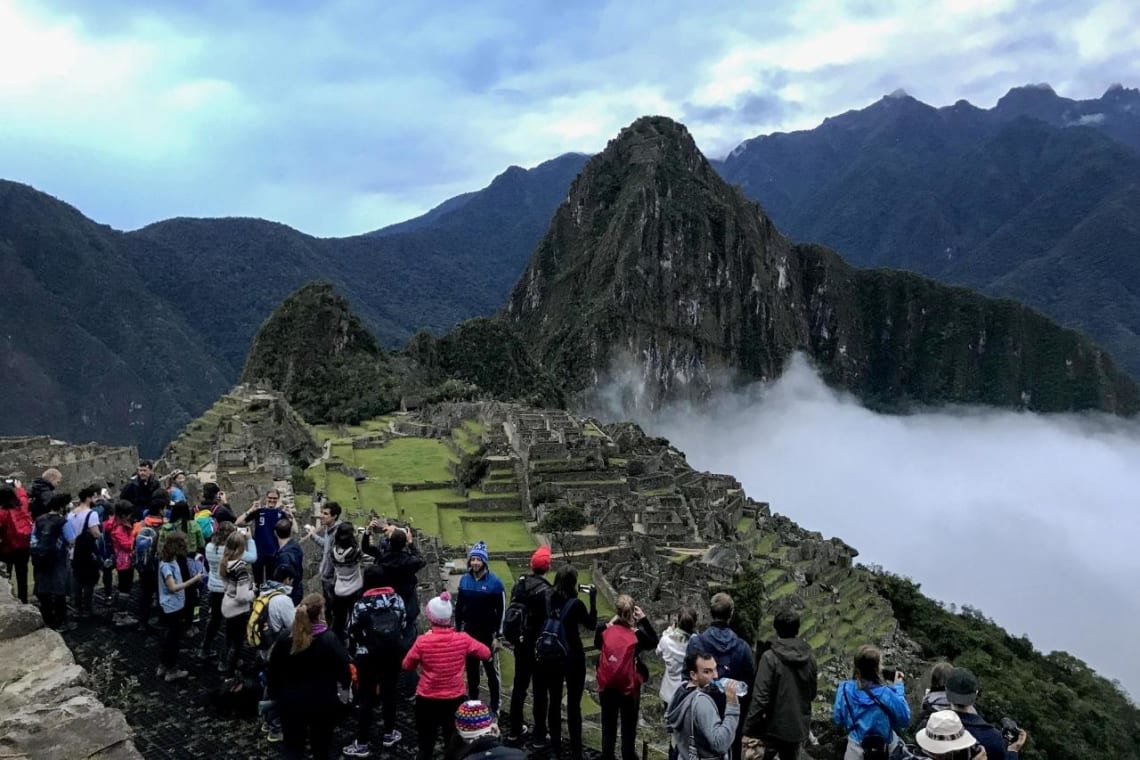
Overtourism happens when a place is visited by too many people, creating bad impact on the environment, animals, or the local communities. In 2022, overtourism is considered a global issue, as the negative impacts become more obvious and more inevitable for locals and the environment.
Places affected by overtourism can also change the experience of the traveller, as many of the places become overcrowded and less authentic.
Data by World Tourism Organisation specifies that there were over 1.5 billion tourists in the year of 2019, and that was a 4% increase from the previous year.
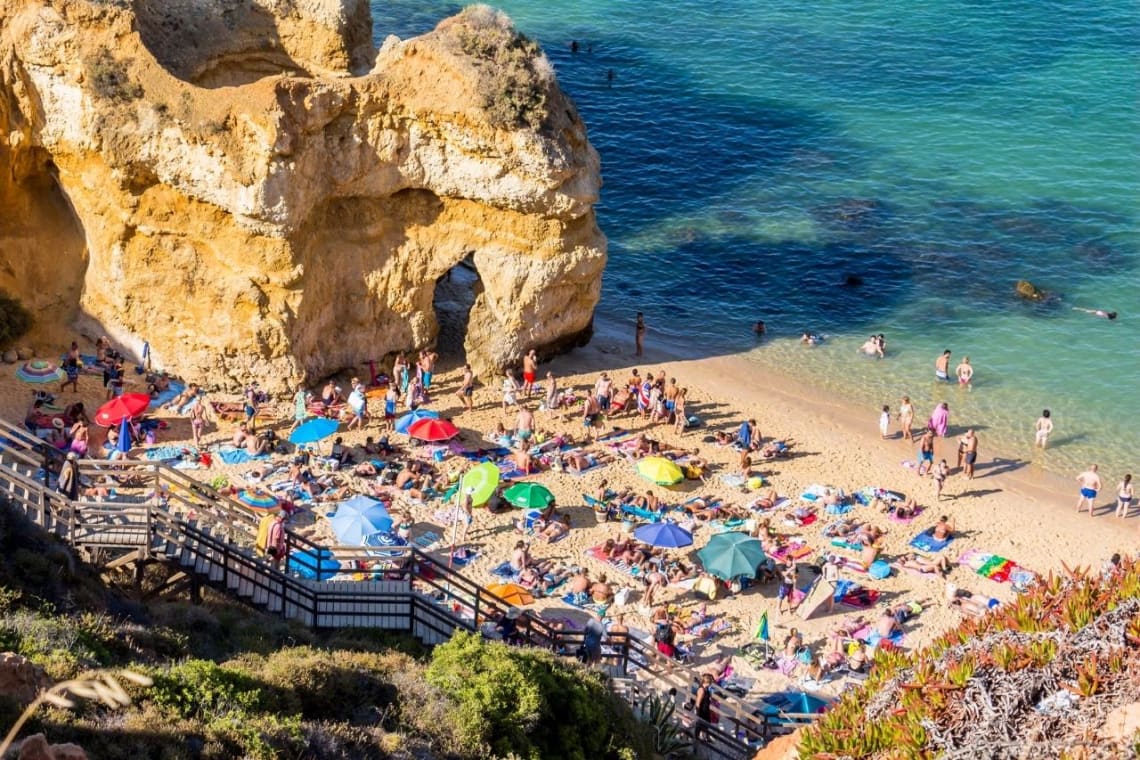
Tourism can bring bad and negative consequences. Whilst a visitor might not experience any of the bad impacts, it is the environment and local communities that will pay the price of mass tourism in their homes.
As a responsible and mindful traveller, it is important that you are aware of the impact that you make on the area when you choose to visit, and then act in a way that will bring in the least amount of negative impacts.
Read this article to learn more about conscientious travel.
Increased waste in the area causes strain to local waste management and can further cause local communities to suffer from health issues, and the of course, impact our planet negatively.
This is more complicated and problematic for communities in rural places. According to United Nations Environment Programme, tourists produce over 4.8 million tonnes of rubbish. Since many of the countries affected by overtourism are still developing, and their waste management can still be poor, additional tonnes of rubbish can be unbearable to deal with or very badly managed.
As natural resources now must be shared with hundred or thousand more people through a system that was not designed to handle such a vast number of users, the natural resources become scarce and at risk of depletion.
Water is one natural resource that is overconsumed by visitors and companies that cater for tourists. Apart from regular use of water for showering or consuming, water is being used in tonnes in swimming pools or landscaping.
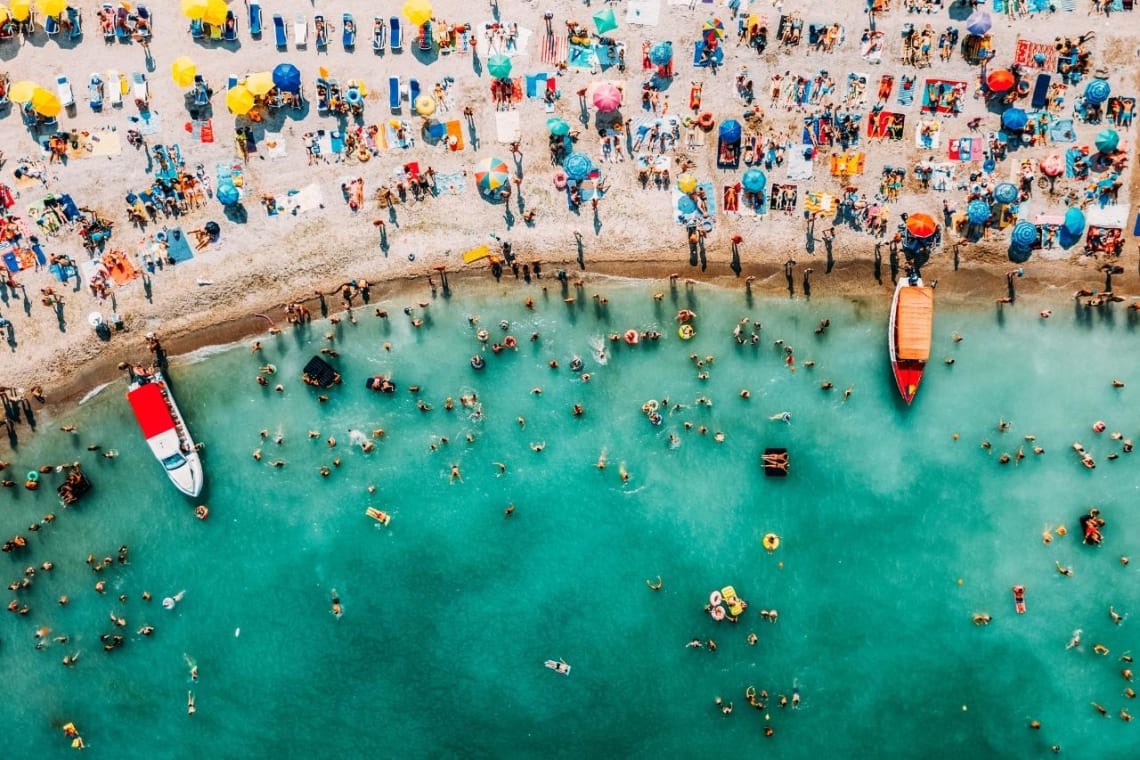
Stressed out and overwhelmed animals need to flee their homes due to the large and noisy crowds of people, coming in and threatening their natural environments.
Additionally, the natural places where they live, are also often destroyed to make way for new infrastructure.
Additionally, animals in the popular travel destinations are very prone to mistreatment, as they are often used to entertain tourists. This means that the animals are often subjected to cruelty.
Read this article to find out more about animal mistreatment in tourism industry.
New, modern infrastructure, such as roads, airports, shopping malls or hotels that are mainly built for tourists is often to blame for deforestation and destruction of nature.
Airbnb rentals have caused many unhappy residents in very popular places such as Barcelona, Paris or New York. Using Airbnb is a controversial subject, where many mindful travellers are starting to question whether it is ethical to use it on their travels.
Although many might think using Airbnb is a great way to directly support locals (in a way it is) and have the ‘life like a local’ experience, this platform might do more harm to the local communities, than good.
Big cities like Paris, Barcelona, London, or Berlin, just to name a few, have hundreds of thousands of short-term rental opportunities. The problem with short term rentals is that it pulls out the property out of long-term housing market. This is responsible for pushing up the prices of houses to the point where locals are no longer able to afford housing in that area.
Finally, the lack of regulation allows anyone to let their place as an Airbnb, allowing for hundreds of thousands of Airbnbs in one city, combined with the ease that one can rent the place with, contributes to over tourism.
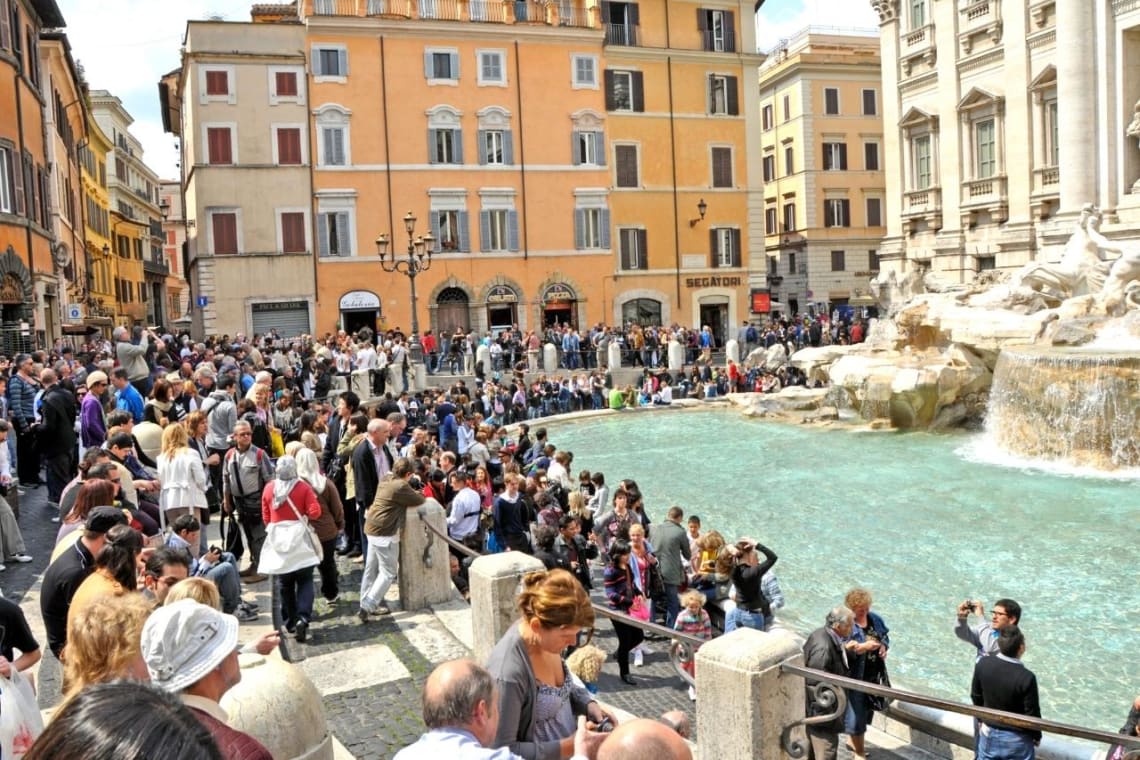
In a lot of affected places new laws and regulations have been set to overcome the bad consequences of over tourism.
For instance, the very popular Maya Bay in Thailand beach was made famous after the 2000 movie ‘The Beach’ featuring Leonardo DiCaprio. the rising demand of tours going deeper into the surroundings led to big coral damage, consequently shutting the beach for restoration for 3 years in June 2018.
When it reopened in 2022, it was open with new strict regulations in place, to prevent further damage.
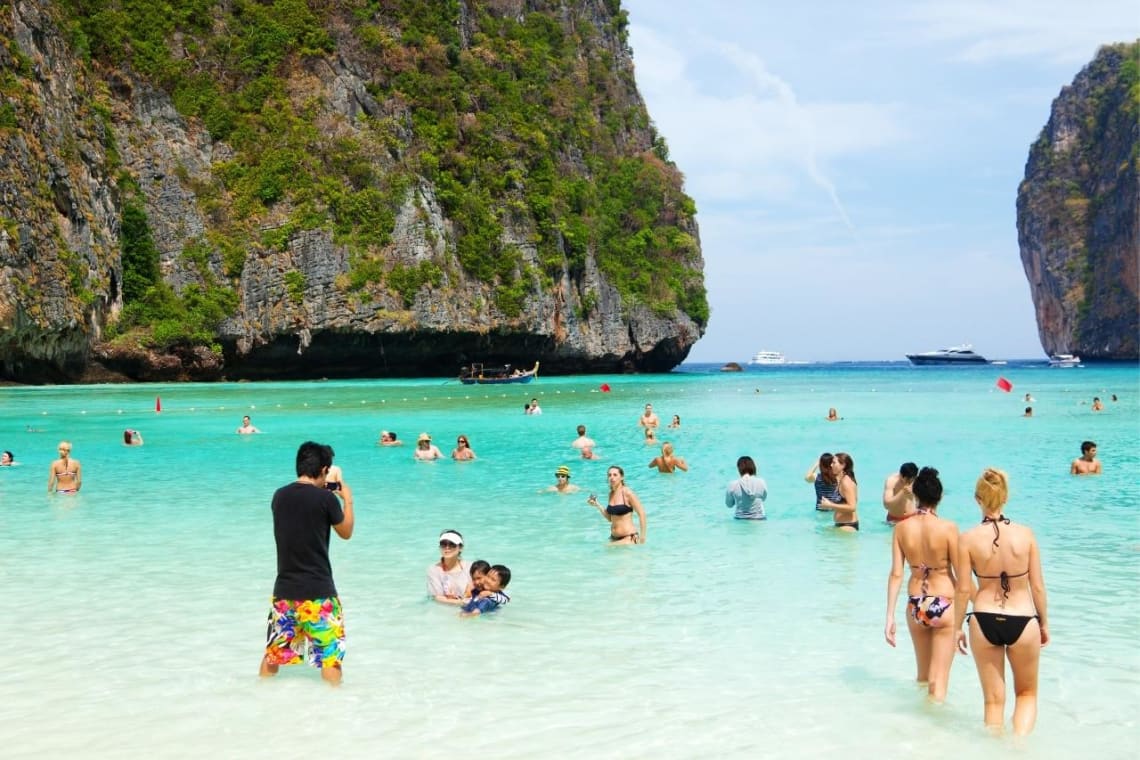
In order to protect the magnificent and mysterious site of Machu Picchu, the government limited the number of people visiting every day to 2,100 and introduced a one way system. Additionally, visitors are no longer able to spend too much time at the site, but if they wish so they need to purchase an expensive ticket, which discourage most from lingering at the site for too long.
Costa Rica limits number of people visiting their National Parks by making their ticket prices not so easily affordable, especially for those travelling in a group or visiting multiple areas.
Many other popular and less popular sites follow the same regulations. This is an example of well-managed, responsible, and sustainable tourism that puts locals and conservation first, and one good way to tackle or prevent over tourism.
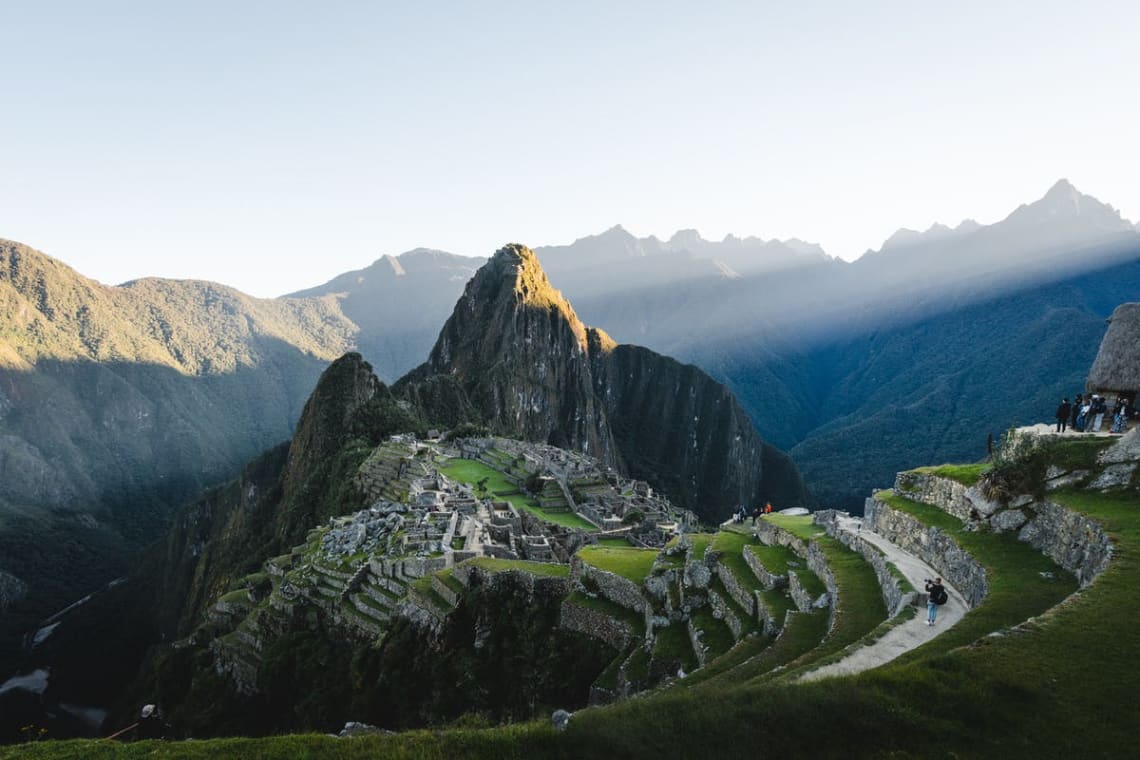
Very often the problem is not the people wishing to explore the world, but the desire for profit or well-being of tourists over locals, and general mismanagement by the people in power that are responsible for the negative impacts of mass tourism. In most cases overtourism affects the host country, however there are ways where overtourism also affect the tourist themselves.
Places that are very touristic are often also overpriced. There are a lot more scams going on, and a lot more people looking to take advantage of the travellers, comparing to rural areas where you can find more honest people. The big crowds and long queues, combined with the need to make reservations well ahead of time can be inconvenient and tiring for travellers.
As travel becomes a regular and normal occurrence around the world, many seek places less visited, to get more authentic and enriching experience. As more people are seeking this new way of travelling, this is impeding mass tourism and helping less touristic locations get their fair share of benefits from tourism.
With travel becoming so easy and with so many sources of inspiration on the internet many more places are becoming touristic. Well managed, locals first, and sustainable tourism can bring many positive benefits, but when mismanaged it does the opposite.
Tourism generates jobs and other opportunities for locals to earn money that could in some cases help to pull them out of poverty, it boosts the economy, develops new infrastructure, and provides cultural exchange. The problem appears when profits are being put before people (especially locals) or before conservation.
Governments are responsible for regulating travel and tourism aspects in their countries. Many are beginning to take action, but many are not, leading to protests, deepened poverty and upset citizens.
Although not travelling to the popular destination might seem like the perfect solution, boycotting the location all together is not practical. After all, the places are overrun for a reason: they are very beautiful or have an important significance. If a place someone has been dreaming about for years happens to be the one that is affected by mass tourism, it would be hard to skip it all together.
It is possible to visit popular and touristic places in an ethical way. The choices you make before and the actions you take before or during your trip can make a big difference.
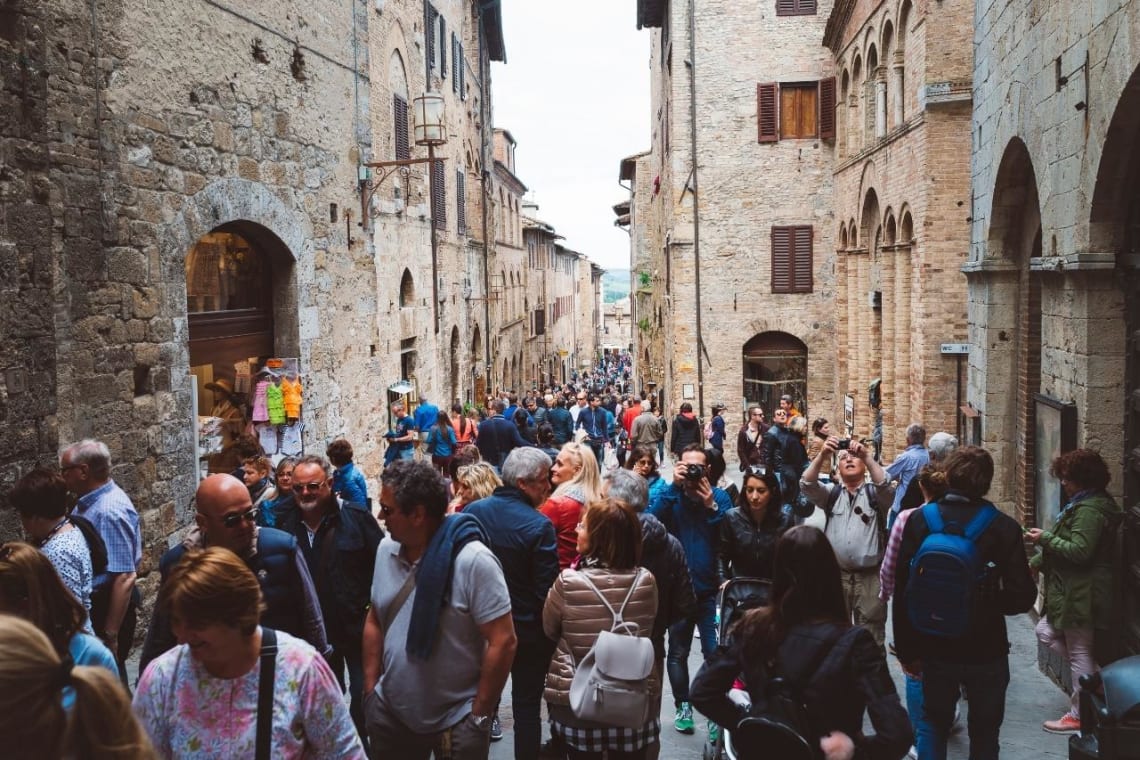
Here are some steps you can take to avoid contributing to over tourism:
Ethical Traveller is an organisation focused on responsible and ethical travel. Every year they review policies and regulations of developing countries and those that are working on improving their human rights, environmental, animal welfare and social welfare issues, make it to ‘The World’s Ten Best Ethical Destinations’ list.
Travelling to countries on the list ensures that you are travelling to countries that take care to preserve their heritage, conserve their nature and local culture and support local communities and their economies. Some of the countries that are on the list are Costa Rica, Uruguay, Jamaica, Cabo Verde, Gambia, Palau and Armenia.
If you’re travelling as part of an organised tour, ensure that the organisation promotes sustainable and ethical travel. Those will often have policies and regulations in place that when followed, will leave a positive impact on the nature and local communities.
Read more about ethical travel and supporting the locals.
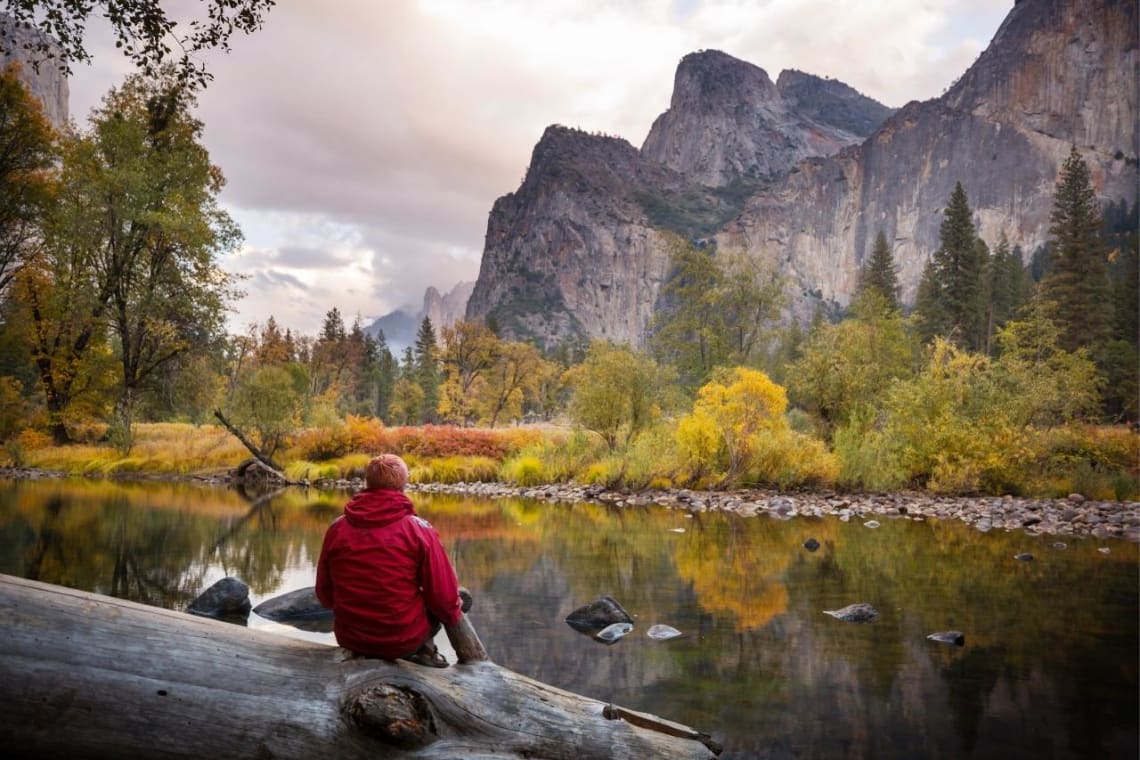
For almost every big, touristic attraction, there exist one that isn’t so touristic, therefore less frequented.
Choosing those places can make your trip a lot more of an authentic and rewarding experience. Going off the beaten path means you will have the chance to engage with the locals, experience the real culture of the place and stay away from the crowds and high entry fees.
Most importantly, you will not contribute to over tourism and it’s bad and negative impacts on the environment and local communities.
Do not feel bad. You can be a responsible and ethical traveller even if you do visit the popular spots. There are some steps you can take to make your visit to popular places ethical.
Remember to think about your actions and how they can affect others around you, and keep your values strong even when the government or the organisation isn’t taking the same actions as you.
Choose to stay in a guesthouse, hostel or a hotel owned by a local. Always follow all instructions in natural or heritage places. Rules that tell you not to touch certain objects or not to do something else are there for a reason, most likely to preserve the place or avoid mistreatment of animals or locals.
Slow travel is an incredible way to get more out of your experience and travel more sustainably and ethically.
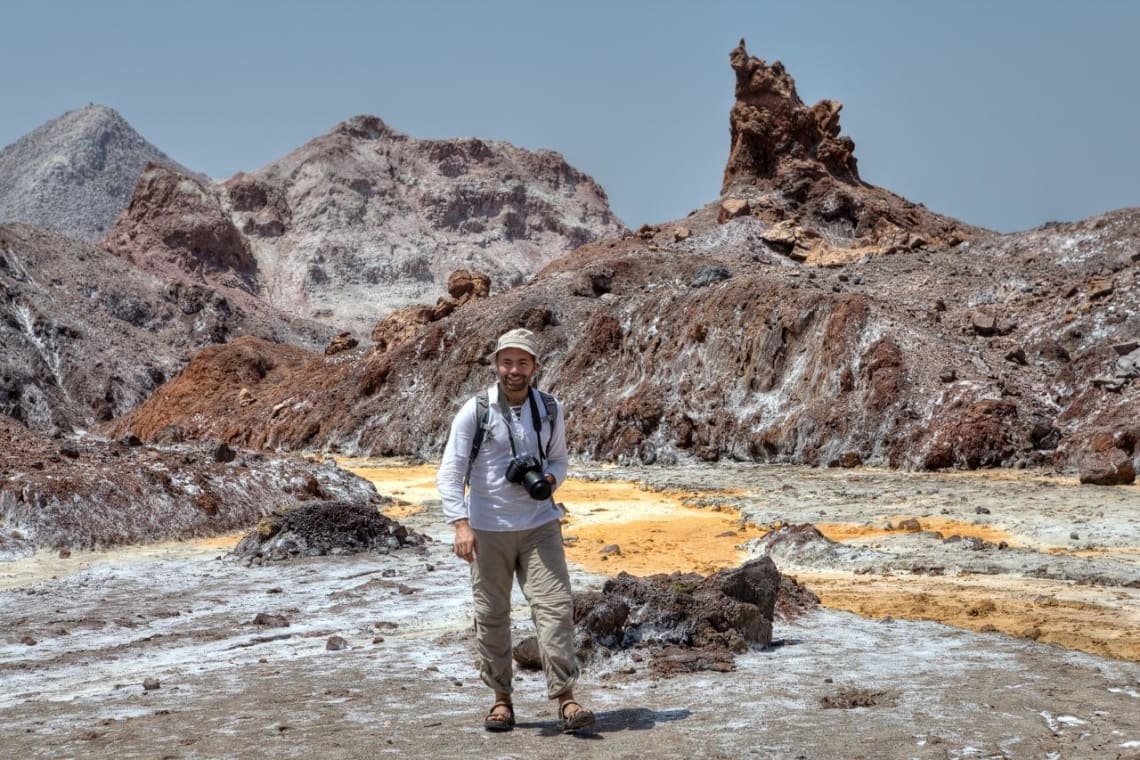
Sustainable travel is part of being an ethical and responsible traveller, that the world needs.
Waste increase is one of the strains that mass tourism comes with, and it can become unmanageable in many countries, especially ones that are still developing.
Becoming more aware of what you consume and reducing your waste can really help to bring the numbers down. Reducing your waste could be as simple as having a reusable water bottle with a filter, shopping bag, cutlery set or metal straw.
Additionally, reconsider buying plenty of souvenirs, and opt for a handmade and useful souvenir made by a local artist instead.
Read more about how to reduce your plastic waste during your travels.
Staying in places that are sustainable helps to reduce your carbon footprint as well as stops the overuse of natural resources.
Choose to travel by public transport or bicycle instead of always renting your own car.
You can even go a step further on your travels and sacrifice your time and energy to help in local projects that aim at eco tourism, nature conservation, or supporting locals. Check out these projects around the world:
These are only some of the many eco-projects looking for volunteers on Worldpackers.

It is hard to talk about over tourism as a traveller myself and this is a controversial issue. However, I think it is important to talk about this global issue.
Being an ethical and mindful traveller is not about being perfect and ultimately it is up to the government, big cooperations and authorities to take actions on over tourism, start working on fixing the consequences and reconstructing the tourism industry in their countries.
Travellers should become more aware of how their visit impacts on the place.
We can still travel to the touristic places if we really desire to. However, before you decide to go think about your intentions. Do you only want to go there to take the famous picture? Do you only want to go because everyone else has been, or because you want to show off? If so, perhaps it would be better to skip the location.
Or do you want to go because it is a place you have been dreaming about for years or because you really want to learn more about about the history of the place or because going there would make you really happy?
If your intentions are this good, then go ahead and visit the location, but try to make it as ethical and sustainable as you can.
Keep reading: Eco tourism destinations around the world
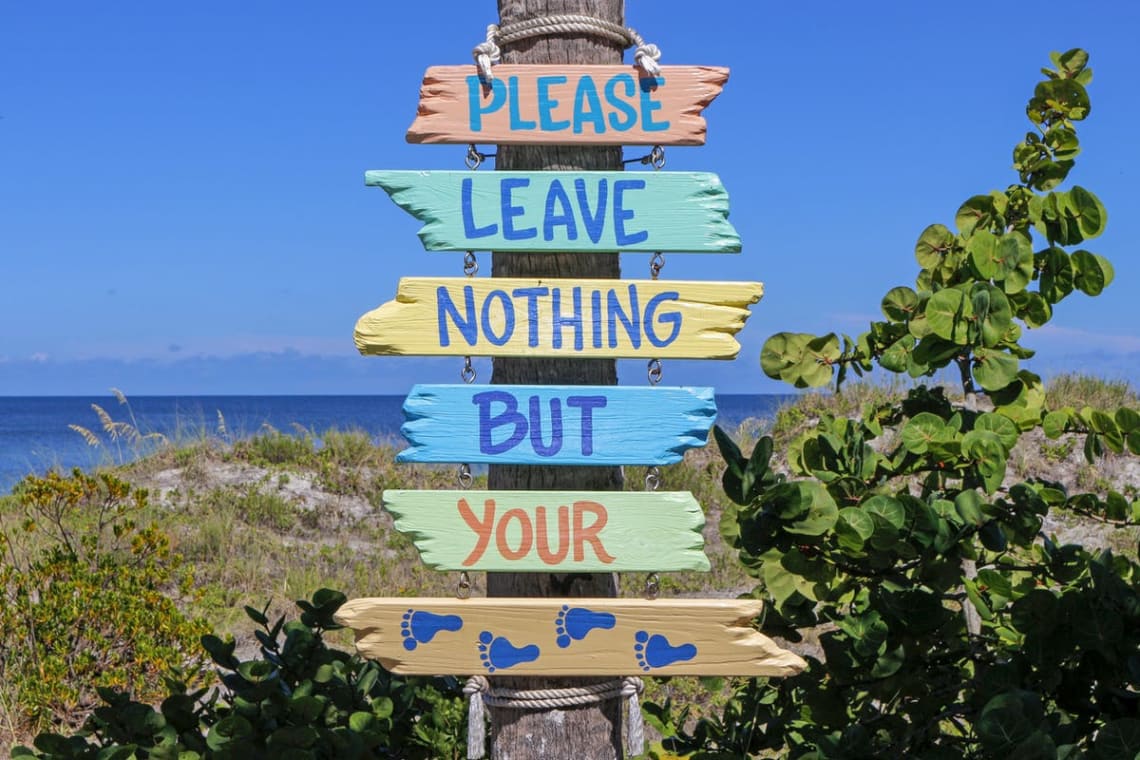
Want to learn more about responsible travel? By subscribing to the WP pack plan you have unlimited access to +120 courses at Worldpackers Academy, the travel school made by travelers!
Write here your questions and greetings to the author
Moufdi
Jan 04, 2023
Naicc